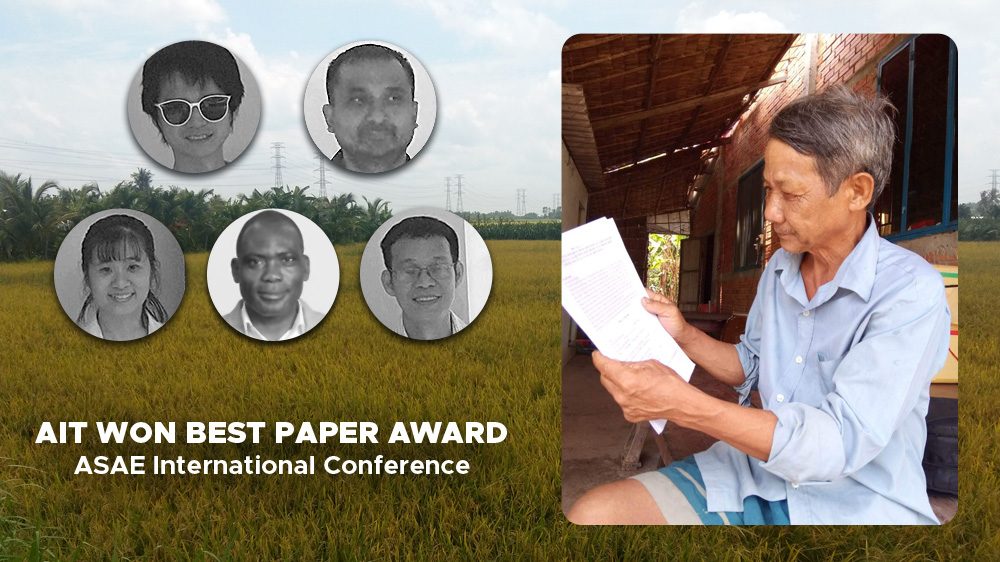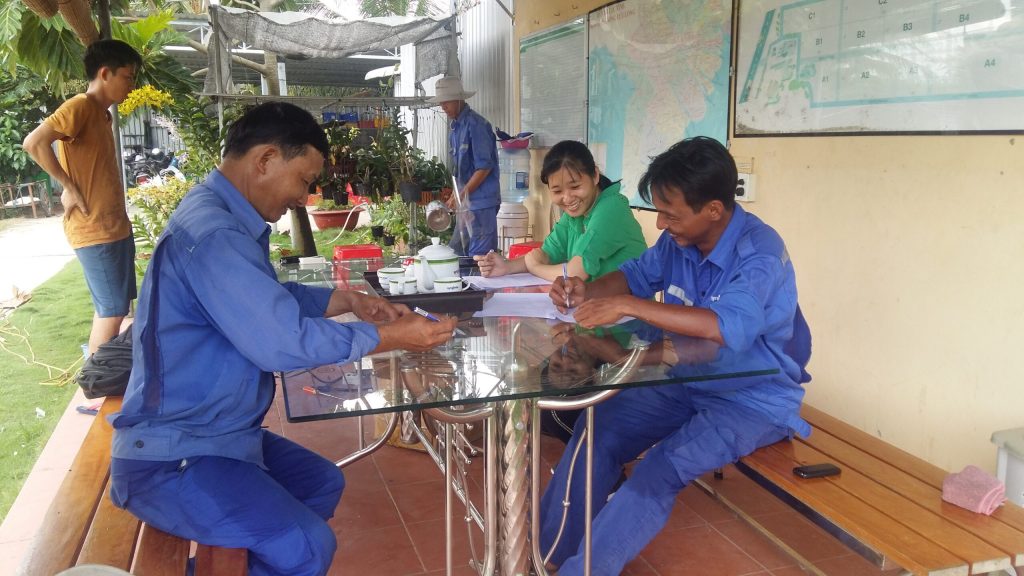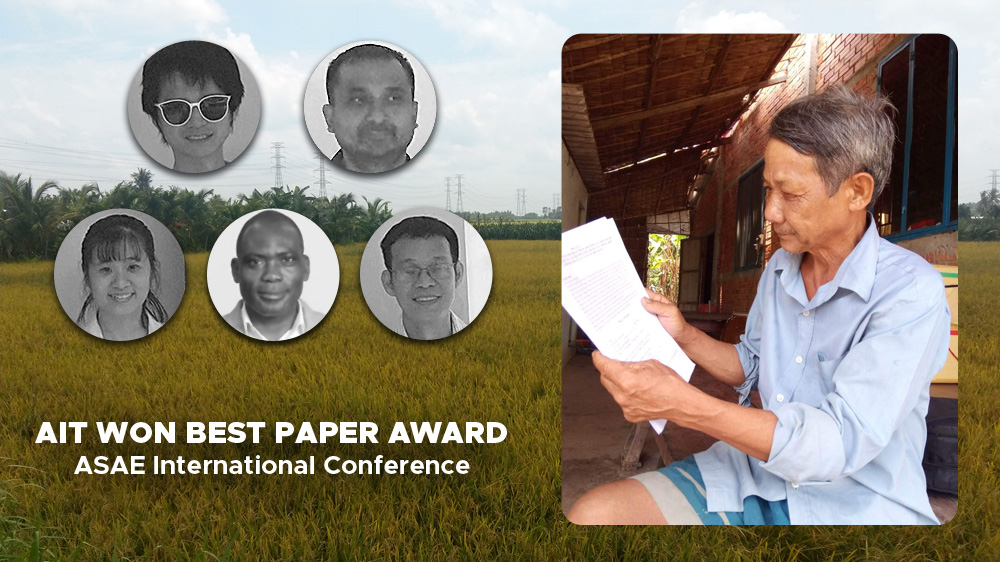By Mae Thiwari
A research paper by students and faculty members at the Asian Institute of Technology (AIT) won the Best Paper Award from the 10th Asian Society of Agricultural Economists (ASAE) International conference, held in Beijing on December 6 – 8, 2021. The paper investigates how rural small-scale farmers, who produce 90% of rice out of the Mekong Delta Region (MDR), adapt to climate change and offers policy recommendation to enhance rural livelihoods.

The paper titled “Determinants of climate change adaptation by smallholder rice producers: Livelihood diversification in the Mekong Delta Region of Vietnam” was authored by a team of researchers: Tien Diem Nguyen Ho; Takuji W. Tsusaka; John K. M. Kuwornu; Avishek Datta; and Loc Thai Nguyen from AIT School of Environment, Resources and Development. It was presented and won the award at the 10th ASEAE International Conference under the theme of “Gearing Asian Agriculture under the Fourth Industrial Revolution: Opportunities and Challenges”.
Vietnam is the second largest rice exporter in the world, where 90% of its exported rice is produced by small-scale farmers in the Mekong Delta Region (MDR). Climate-change-induced stresses, notably from droughts, floods, and salinity intrusion in the region, do not only affect the supply of rice in the world’s market, but also the livelihoods of the rural rice farmers. To adapt, farmers have diversified income sources by ways of switching from growing traditional to improved rice varieties, to growing high-value crops, to making livestock products, and to doing off-farm activities. What was still not well understood is what type of stress leads to which livelihood option and why?
The awarded paper provides an insight into the thorough understanding of livelihood diversification and its farm-level determinants in the MDR. Additionally, the novelty of the paper is its incorporation of diverse agroecological zones, namely, the alluvial zone, deep-flood zone, and saline zone in the MDR.
Drawing on the primary data collected from 405 farm households, the team employed econometric methods for quantitative analysis. One of the remarkable findings is that farmers exposed to drought or flood stresses in recent years tend to adopt traditional rice varieties, e.g., IR50404, more than modern cultivars, e.g., Jasmine: Dai Thom 8; or Nang Hoa, because the modern varieties accessible in the study areas were mainly the resource-consuming type, i.e., high-yielding under favorable conditions but susceptible to environmental stresses. Another key finding is that those prone to salinity intrusion tend to engage in off-farm income activities. To enhance rural livelihoods, the agricultural extension and seed systems should provide the resource-efficient types of improved varieties in the MDR in general, while the authorities should promote off-farm employment in salt-affected areas.


